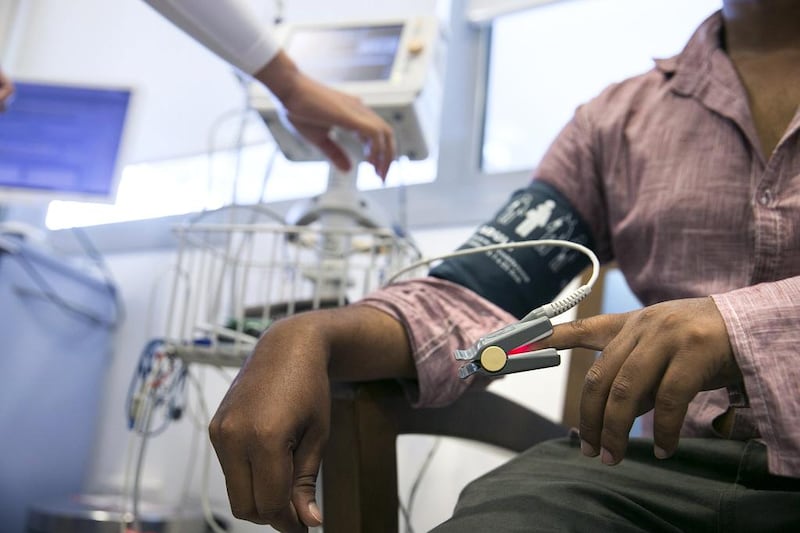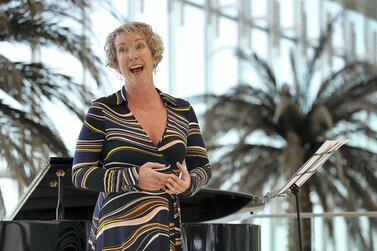Leading UAE physicians have highlighted the dangers of strokes and said that early recognition is vital to improving recovery rates.
Speaking on World Stroke Day, doctors said minimising the long-term health implications of strokes depended on the speed of treatment.
Medics now believe up to 90 per cent of strokes are preventable through lifestyle changes, including eating less salt and processed food.
Between 10,000 and 12,000 people suffer strokes in the UAE each year, with 50 per cent of victims aged under 45.
The acronym FAST is often cited to help people identify if they or a friend or loved one is having a stroke.
FAST stands for facial drooping, arm weakness, speech difficulties and time.
Anyone experiencing these symptoms should seek medical treatment immediately.
“It has been calculated that we lose 1.9 million brain cells per minute in an acute stroke,” said Dr Victoria Ann Mifsud, neurologist and stroke programme director at Cleveland Clinic Abu Dhabi.
“Speed is therefore the most important consideration in stroke cases, because every second counts.”
There are an estimated 15 million stroke cases around the world each year, according to the World Health Organisation. More than five million of these sufferers die.
“When a suspected stroke case reaches the Emergency Department at CCAD, the stroke team is immediately notified, and the stroke alert process is set in motion,” Dr Mifsud said.
“A CT scan of the brain and a CT angiogram of the blood vessels supplying the brain are immediately performed.
“Based on the images, the physicians are able to see if there is bleeding in the brain or not.
“The earlier they receive treatment, the greater their chance of doing much better.
“However, relatively, not that many patients present in time. We want to urge people to go to stroke centres when they believe they are having a stroke."







